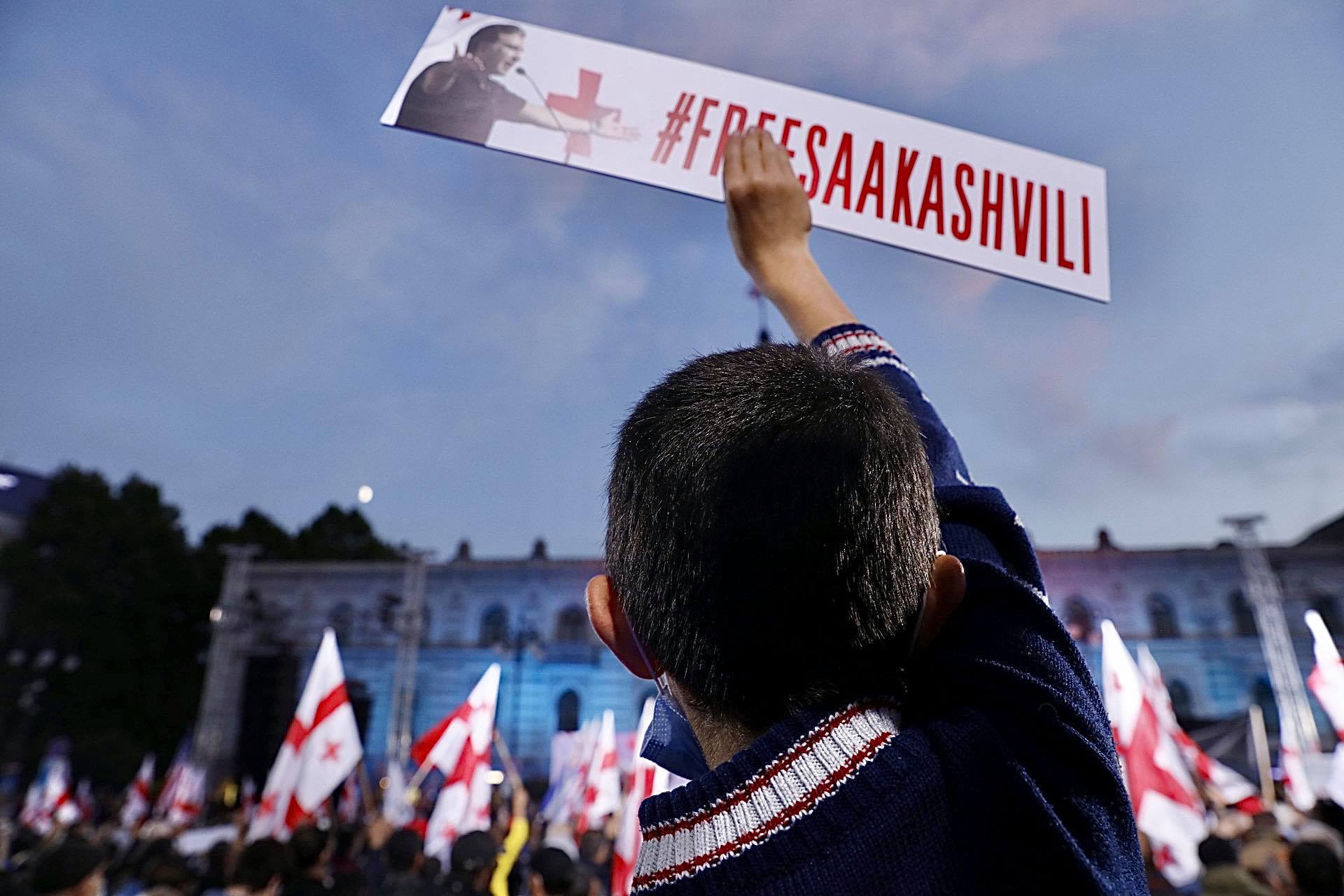Opinion | Europe can’t afford Georgia’s fatal outcome
Zurab Tchiaberashvili is Georgia’s former Ambassador to the Council of Europe and the U.N. Office in Geneva
It seems impossible to imagine Georgia’s European perspective without resolving the issue of President Mikheil Saakashvili. However uncomfortable that might be for some, legally questionable charges against him and the deterioration of his health during imprisonment remain central to Georgia’s political agenda for more than a year now. And for some good reasons.
Saakashvili’s malaise is not accidental or self-induced. The group of Georgian doctors specially created by the Public Defender of Georgia and the independent group of American medical experts gave their professional verdict: Saakashvili’s life is in danger. These doctors say that the discovery of traces of mercury and arsenic in the patient’s body must be conclusively explained and that the resulting intoxication may be causing many of Saakashvili’s worst symptoms. Both medical teams strongly recommend that he should be transferred immediately to a medical facility in the United States or Europe.
Some may sincerely believe, or naively assume, that the fatal “disappearance of Saakashvili problem” would break the political deadlock. I won’t dwell on how morally catastrophic such thinking is. But pragmatically, President Saakashvili’s death in custody could bury Georgia’s European, democratic future.
President Mikheil Saakashvili is the only leader in the 30-year history of Georgia’s independence to oversee the peaceful transfer of power through elections in 2012. How can the country hope to reverse its democratic backsliding of recent years if losing power means ten years of political persecution and, ultimately, a deadly political reprisal?
Failure to save Saakashvili from his peril will dismay many opposition-minded citizens. How could the opposition parties hope to effect changes beneficial for the citizens, if they are not even capable of saving the life of the former president? How could the voters place their hopes in the West, if it is either too weak to prevent Saakashvili’s death, or has no sufficient interest in Georgia to intervene?
The voter frustration will significantly reduce the potential for changes in Georgian society. I doubt that any new political force would be able to overcome such frustration if the worst were to pass. This means, that the authoritarian tendencies of the current Georgian regime would strengthen further. The fatal outcome for President Saakashvili will be fatal for the Georgian democracy as well.
Without a steady transition to democracy, Georgia will be a failing, authoritarian state, isolated from the international democratic society and thus under Russian influence.
If this comes to pass, Georgia’s return under Russia’s shadow will be tragic for Georgians who fought for the future of their country. But it won’t be without consequences for Europe, either. The example of Belarus shows how the states beholden to Russia invariably become instruments of the Kremlin’s aggressive designs.
If Europe wants to create a security fence along the Russian border then Georgia must be involved. If NATO is serious about securing the Black Sea region, Georgia must also be one part of that puzzle. Georgia’s Western allies can hardly afford to have a weak link in the emerging security architecture, a weakness that Russia could easily exploit.
Georgia’s democracy is in mortal peril now, and the fate of its former president has become the painful and visible embodiment of this danger. The question is not whether Georgian politicians are politically infantile – perhaps they are. The question is not whether Europe is tired of Georgian problems – maybe Europeans are justified in feeling this way.
But is it in Europe’s interest for democratic Georgia to die and fall into Kremlin’s grip? I think Europe cannot afford a fatal outcome.
The views and opinions expressed on Civil.ge opinions pages are those of the authors and do not necessarily reflect the official policy or position of Civil.ge editorial staff.
